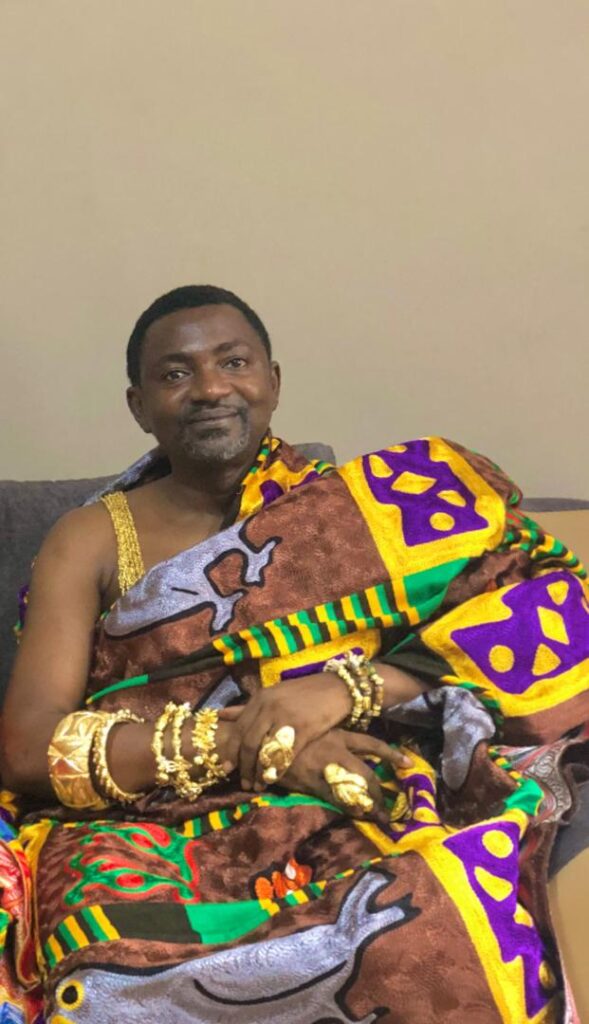
In the ancient Greek myth, King Midas was granted a singular wish by the god Dionysus: the power to turn everything he touched into gold. His joy, however, was short-lived. The food he tried to eat hardened into precious metal, the wine he thirsted for solidified in the cup. His ultimate tragedy came when he embraced his beloved daughter, and in a moment of horrific realization, turned her into a lifeless, golden statue. The gift was unmasked as a devastating curse, a lesson in the peril of valuing wealth above all else.
Centuries later, in the rich, red earth of Ghana, a modern-day King Midas tragedy is unfolding. It is known as Galamsey—a portmanteau of “gather and sell”—and it is the illegal, small-scale gold mining that has gripped the nation. Like Midas’s wish, it promises the allure of instant wealth, the glitter of gold that can lift families from poverty. But just like the myth, this golden touch is proving to be a profound curse, one that is turning the very sources of life into barren, toxic statues.
The Golden Touch
The promise of Galamsey is seductive. In a region where economic opportunities can be scarce, the chance to pull a nugget of gold from the soil is a powerful siren call. For many young Ghanaians, it represents a faster path to prosperity than traditional farming or education. The “gift” is immediate cash, a livelihood, and the dream of a better life. This economic desperation is the modern equivalent of Midas’s plea to the gods, a desire for a transformative power that can change one’s destiny.
The Curse Revealed
But the Midas touch of Galamsey comes with its own terrible price. The methods used are brutally destructive. Miners, often working with rudimentary tools and dangerous chemicals, tear vast craters into the earth, decimating forests and farmland. To separate the gold from the ore, they use mercury—a potent neurotoxin. This mercury washes into rivers and leaches into the soil, poisoning the entire ecosystem.
This is where the myth becomes a devastating reality:
- The Food Turns to Poison: Just as Midas could not eat his golden feast, Galamsey threatens the food and water security of millions. Ghana’s rivers, once vibrant sources of life, drinking water, and irrigation for crops, now run a murky, toxic brown. They are poisoned with mercury and silt, rendering the water undrinkable and the fish unsafe to eat. The very act of trying to secure wealth destroys the means of sustenance.
- The Daughter Turns to Stone: In the myth, Midas’s greatest love becomes a cold, inanimate monument to his greed. In Ghana, the “daughter” is the land itself—the fertile soil, the lush rainforests, the vibrant ecosystems that sustain culture and life. These are turned into barren, moon-like landscapes, lifeless and sterile. The future inheritance of the next generation is quite literally being turned to dust and poison for short-term gain.
The parallels extend further. Midas’s gift isolated him, making him a prisoner of his own power. Galamsey fractures communities, pits neighbors against each other, and fuels corruption and crime. It creates a cycle of dependency where the land is destroyed, leaving no option but to continue mining, deepening the environmental ruin.
A Wish to be Taken Back
The myth of Midas does not end in perpetual despair. Horrified by his curse, he begged Dionysus to take the gift back. The god relented and instructed Midas to wash in the river Pactolus. As he did, the power flowed out of him and into the river sands, which, the myth says, is why the river was rich with gold dust thereafter.
This part of the tale offers a sliver of hope. It is a lesson in acknowledgment and redemption. The first step to breaking the curse is to recognize that the golden touch is, in fact, a curse. For Ghana, this means confronting the Galamsey crisis with unwavering resolve—through stricter enforcement, sustainable alternative livelihoods for miners, and large-scale land rehabilitation projects.
The story of King Midas is a timeless warning about the unintended consequences of unchecked desire. Galamsey is its modern, heartbreaking embodiment. It reminds us that when we touch the earth not with reverence but with a reckless hunger for gold, we risk turning our rivers to poison, our fields to stone, and sacrificing our children’s future for a wealth that we cannot eat, cannot drink, and that ultimately, cannot sustain life. The challenge now is to find our way to the river and wash the curse away, before the transformation becomes permanent.
DISCLAIMER: The Views, Comments, Opinions, Contributions and Statements made by Readers and Contributors on this platform do not necessarily represent the views or policy of Multimedia Group Limited.
DISCLAIMER: The Views, Comments, Opinions, Contributions and Statements made by Readers and Contributors on this platform do not necessarily represent the views or policy of Multimedia Group Limited.
Source: myjoyonline.com










